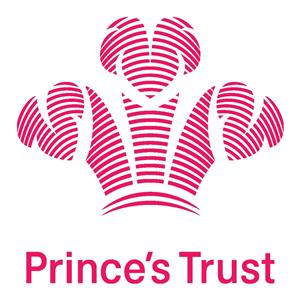Schizophrenia and Work: Sources of Help for Jobsearching
Other Sources of Help for People with Schizophrenia
Financial Support
If you have been unemployed for a long time and have been living on benefits one of the hurdles you will face when trying to get back into work is lacking resources to help you with job-searching. For instance you may want to train in new skills or refresh existing ones, you may need money to join or re-join a professional institute, you may need help with the cost of travelling to job interviews or help to buy smart clothes or if your new job involves travelling you may need help to get your car back on the road. And increasingly these days self-employment is seen as an option for people who have been out of work for a long while and who will need skills in setting up their own business.
There are a number of organisations that can help you with financial support if you find yourself in this position.
Industry Charities
Most large industries such as construction, engineering, electronics, retail etc have benevolent charities which give grants to people who have worked in the industry and who now need help. Many will also provide support to close relatives of someone who has worked in the industry. So if your parents have ever worked in an industry then you may be able to get help.
If you or your relative has ever worked for the government then the Charity for Civil Servants may be able to help and the disciplined civilian services such as police and fire service also have their own charities. Similarly most professional institutions e.g. for engineers, doctors, nurses, teachers or accountants etc also have benevolent schemes.
Try your local library or searching on the internet to find out if a charity exists that could help you. Most charities are very ready to help people who are disabled and trying get back into the workplace.

The Princes Trust can provide help for young people with schizophrenia looking for work or trying to start their own business.
The Princes Trust
The Princes Trust was established in 1976 and helps young people (up to 26 years old) who are not in work. It provides training and help with job-searching for young people looking for work and grants and support for unemployed young people who are thinking of starting their own business or starting out as self-employed.

The Royal British Legion can help people with schizophrenia who have served in the armed forces. (Image: Kruglov_Orda/Shutterstock)
Ex Service People
For men and women who have served in the armed forces, including the reserve forces, there are a number of ex-forces charities that can give help. The first point of contact is normally your local office of the Royal British Legion.
Training and Qualifications
To improve your chances of finding successful employment you should consider training in two specific areas. The first is to equip yourself with skills relevant to the particular job that you are trying to get and the second is to try to gain some basic work skills that will help you in any job: skills like administration and time management or if your job involves driving it may be useful to consider your advanced driving test.
There are several options for you to gain new skills and qualifications.

Vocational training courses for people with schizophrenia in a range of trades and jobs is available at most local further education colleges. (Image: Shutterstock)
One option is to try your local further education college or adult learning centre. These are extremely useful as they may provide discounted fees for people living on certain kinds of state benefits and some even provide grants to help with the cost of text books and other essential learning materials.

If you don’t feel up to formal classroom study at college then studying at home by distance learning may be right for you. (Image: Jack Frog/Shutterstock)
Another option is distance learning from home. There are many providers of distance learning courses in the UK but for undergraduate degree courses the largest and most prominent is the Open University which provides degree level courses in a wide range of subjects. Again concessionary fees are available for people on benefits and there may be additional help for people with disabilities including mental health disabilities. Learning is mainly over the internet, so a computer is essential.
One great advantage of distance learning is that you can schedule learning times around your own timetable and don’t have to attend formal lectures. If you have difficulty with negative symptoms which affects your motivation during the day this may be a good option for you. However earning a degree is not easy. There will be a lot of hard work to get in assignments and a typical undergraduate degree course can take up to six years to complete.
Self Employment
Self-employment is a popular option for many people living with mental health problems who want to get back into work. The range of jobs available is very wide and can include things like dog walking, handyman, gardener, proof-reader etc. Self-employment has many advantages, for instance it allows you to organise your work-load around your abilities and frees you up from a strict nine to five timetable.
Advice about setting up on your own is available on the government website at https://www.gov.uk/browse/business/setting-up and there are a number of organisations that exist to help people with advice and coaching: for instance Outset which specifically aims at people who have been out of work for a long time or who have disabilities.
However, if you are thinking about setting up on your own don’t think of it as an easy option. It will need a lot of careful planning and preparation and it can be hard work. Remember that although you might not have a boss breathing down your neck you will have to keep your clients happy or they will very likely go elsewhere.
Help with Job-searching
If you don’t have a lot of experience in looking for a job there will be a lot to learn and learning by your mistakes is not the best way to learn. It is really helpful to equip yourself with effective job-searching skills before you start looking for work to make your efforts more effective. Key skills to consider are:
· Writing your CV
· Researching the job market
· Letter writing
· Interview skills.
Some local colleges and adult education centres run courses for job seekers and it would be a good idea to ask at your local library or at the Jobcentre for advice.
In many towns or cities there are also centres run by the WEA (Worker’s Educational Association) which provide a wide range of courses in many subjects.
Individual Placement and Support (IPS)
Individual Placement and Support (IPS) is a service available in the UK to help people with serious mental health diagnoses get into work or if they are already in work, to find other types of employment better suited to their disability. It is accessed through the local mental health teams either in the community or at the inpatient mental health unit. IPS advisors provide coaching and guidance usually at weekly sessions (due to Covid this may be provided on-line now). They can provide practical guidance on issues like job searching, preparing CVs and cover letters and interview techniques as well as the vital moral support needed to overcome issues around confidence and self-worth. Crucially the advisors can help with the difficult aspects of job hunting like disclosing mental health diagnoses. The IPSGrow website has an interesting collection of stories written by mental health sufferers who have used the service and also some of the advisors who provide the support.
Twining Enterprise
Established in 1995, Twinings is a London-based charity which aims to provide employment support services to help people living with mental ill health to access mainstream employment. Like the IPS scheme Twinings provide coaches to help prepare people better for job searching with skills like CV writing and interview techniques etc. Twinings are also involved with the delivery of the IPS scheme in the London area. In some cases, they can also give limited financial support with some costs like training course fees and help with buying outfits for interviews as part of their intensive support.
Scope
Scope is a national UK charity founded in 1952 which exists to work for a better deal for people with disabilities. It also delivers a number of schemes https://www.scope.org.uk/employment-services/support-to-work/ aimed at supporting people into work. Scope’s employment advisers can deliver help and guidance on-line and over the telephone. The support programme usually lasts about 12 weeks with an option for ongoing in-work support lasting for another 26 weeks. There will be help with CV writing and interview techniques and importantly guidance on applying to the Access to Work Scheme. To access the scheme an application can be made directly onto the Scope website.
Access to Work
Access to Work is a government-run scheme that provides financial help for people with disabilities (including mental ill health) and who want to get into employment. To be eligible for the scheme you must be either in work or about to start a job and in order to do the job you will need additional financial support that cannot be met from other state benefits. You must live in England, Scotland or Wales and be over 16 years of age. You must also have a disability or mental health issue that adversely impacts on your ability to do your work. The types of employment for which help is available can be direct employment, self-employment, work experience placements and internships but not work as a volunteer. Your eligibility will also be affected by your other state benefits so if you are interested in finding out if this would fit your situation then you should speak to the Job Coach at your local Job Centre. Help is available for a wide range of assistance including purchasing specialist disability equipment for those with physical disabilities and travel to work by taxis if you have mental health issues that mean you can’t use buses or trains. For the full list of help available go to the Gov.UK website In addition to financial support the scheme also provides for support from a trained mental health worker.
Remploy
Remploy is a UK national charity founded at the end of the second world war and which provides services for people with disabilities living in England Scotland and Wales. They are currently involved in delivering both the Access to Work employment support service and the Individual Placement and Support service for the government agencies in addition to their other work. A number of Remploy’s programmes are regionally based such as Working Well and Fair Start Scotland.
And then there is always Amazon. Good books are available on Amazon and other booksellers to help you with these skills. If you buy from Amazon you can always trade the book in or sell it on line when you have finished with it.

Your local reference library is a great source of information about jobsearching. (Image: Monkey Business Images/Shutterstock)
To find out about the help that is available in your area, you should start with a visit to the local reference library where you will find the staff will be only too happy to help you with research. Then you will need to start searching on the internet (If you do not have computer skills yet you should make learning them one of your top priorities; most jobs nowadays require a certain level of computer literacy and good IT skills will give you a definite edge in the job market). Keeping a close eye on the local press and notice boards for instance at your outpatient centre are also good ideas.
Useful Hint
There are three qualifications that many employers love and which will help to make you more employable.

A first aid at work certificate is inexpensive and is valued by most employers. (Photo: Andrey_Popov on Shutterstock)
The first is a Health and Safety Executive approved three day First Aid at Work certificate. These are provided by organisations like the St John Ambulance and Red Cross and typically cost around £300. First aid courses are also run by some local colleges who may give reduced rates for people on certain benefits.
Next is a one day Fire Warden course which typically costs around £120 and is available from local commercial training providers.

Fire warden training takes only one day and is another qualification much valued by employers. (Photo: Forance on Shutterstock)
Also to be recommended is the five day workplace health and safety course such as the Managing Safely course accredited by the Institute of Occupational Safety and Health and which is run by many local colleges. These typically cost around £1,500 and can be found at local colleges or commercial training providers.
All three of these qualifications are valued by most employers as it enables them to have a member of staff trained in these skills without them having the expense of training them themselves. They are transferable skills which are applicable to almost any workplace and if you have them they will put you at a definite advantage over other candidates when looking for a job.
References
1. This article has been based on the author’s personal experiences.
Links
The Princess Trust
http://www.princes-trust.org.uk/
Charity for Civil Servants
http://www.foryoubyyou.org.uk/
Royal British Legion
http://www.britishlegion.org.uk/can-we-help
Red Cross
http://www.redcrossfirstaidtraining.co.uk/
St John Ambulance
http://www.sja.org.uk/sja/training-courses.aspx
Institute of Advanced Motorists
http://www.iam.org.uk/
Open University
http://www.open.ac.uk/
WEA (Worker’s Educational Association)
http://www.wea.org.uk/
Outset
http://www.outset.org/
National Careers Service
https://nationalcareersservice.direct.gov.uk/advice/planning/Pages/longtermsickness.aspx
Further Reading
Ultimate Job Search, 2008, Lynn Williams, Published Kogan Page.







